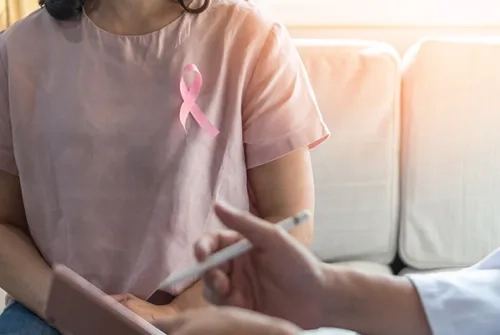Alo Yeditepe
Alo Yeditepe
External Genital Area (Vulva) Cancer
Vulvar cancer, which ranks 4th among gynecological cancers, has a rate of 5 percent among all gynecological cancers. Vulvar cancer, which is a type of cancer that usually belongs to the postmenopausal period, is seen around the age of 65 on average.
HPV Is Also Effective in Vulvar Cancer
Its precursor (premalignant) lesion is vulvar intraepithelial neoplasia (VIN) and is seen in young patients with an average age of around 40 years. It can progress to cancer after an average of 10 years. Recently, the frequency of VIN has increased between the ages of 20-40.
What Are the Causes of Vulvar Cancer?
HPV positivity is seen in 80% of VIN lesions in young people. On the other hand, vulvar cancers in elderly women are cancers that are not related to HPV infection and are mostly associated with diseases such as chronic inflammation and lichen sclerosis, which are also related to dermatology. Other risk factors are immunosuppression, smoking, and viral infection due to herpes simplex. HPV types 16 and 33 were found to be responsible for 55.5% of HPV-related vulvar cancers.
On the other hand, vulvar cancers in elderly women are cancers that are not related to HPV infection and are mostly associated with diseases such as chronic inflammation and lichen sclerosis, which are also related to dermatology. Other risk factors are immunosuppression, smoking, and viral infection due to herpes simplex. HPV types 16 and 33 were found to be responsible for 55.5% of HPV-related vulvar cancers.
What Should Be Done to Prevent Vulvar Cancer?
Although the exact cause of vulvar cancer (external genitalia) is not known, risk factors are thought to be effective in the development of vulvar cancer. Therefore, it is important to take precautions in this regard in order to prevent the disease.
Using condoms during sexual intercourse, not smoking, not interrupting regular check-ups, having Pap Smear tests, and getting vaccinated against HPV are among the precautions that can be taken. Since the development of antibodies in vaccines occurs over time, it is important to be vaccinated in the early period before starting sexual activity.
What Are the Symptoms of Vulvar Cancer?
Symptoms of vulvar cancer differ from woman to woman. However, the most common symptoms are differences in the color and appearance of the vulva, constant itching, severe burning or pain, the white and hard appearance of the vulva skin, skin thickening and rash, abnormal bleeding, and pain during sexual intercourse. However, since these symptoms can occur in different problems, it is absolutely necessary to see a physician to perform a physical examination for diagnosis.
How to Treat Vulvar Cancer?
As in other types of cancer, the treatment approach in vulvar cancer is determined by the stage of the disease, the age of the patient, and the degree of prevalence. Treatment is carried out with a multidisciplinary approach, which includes surgery, radiotherapy, and chemotherapy.
This content was prepared by Yeditepe University Hospitals Medical Editorial Board.
”
See Also
- What is Endometrial Cancer? Endometrial Cancer Symptoms and Treatment
- Contraceptive Methods: Birth Control and Effective Protection Options
- What is Vaginal Infection? What are the Symptoms?
- What is HPV? What are the Symptoms of HPV? How is it Transmitted?
- Frequently Asked Questions About HPV Vaccine
- Can Women With Gynecological Cancer Have Children?
- Can Cervical Cancer in Women Be Prevented?
- All You Need to Know About Cervical Cancer
- Be Careful When Consuming Sage During Pregnancy
- HPV Infection Also Affects Men, Not Just Women
- Do Ovarian Cysts Prevent Childbearing?
- No Obstacle to Having Screening Tests in Gynecological Cancers
- Men Should Also Be Vaccinated Against Cervical Cancer
- Urinary Incontinence Causes Depression in Women
- Endometrial Cancer
- Ovarian Cancer
- Can Cervical Cancer Be Prevented in Women?
- Pregnancy Helps Reduce the Risk of Uterine Cancer
Alo Yeditepe




